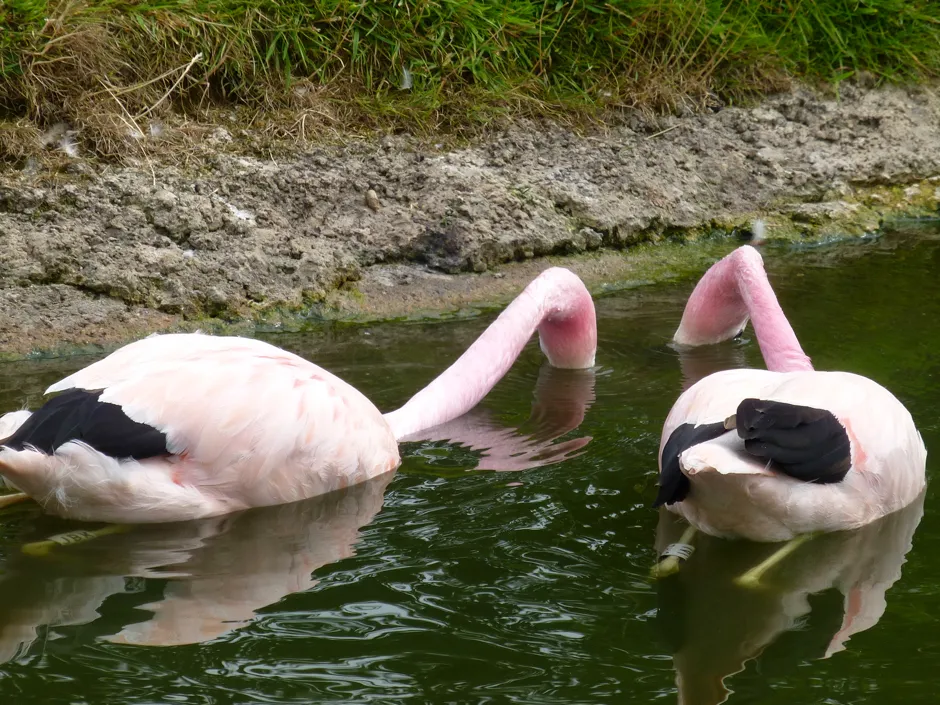Flamingos form long-lasting friendships and some even behave like married couples, according to research.
A study led by the University of Exeter has shown that the wading birds tend to spend time with close friends, despite being part of large flocks.
The team also found that, much like humans, flamingos avoid certain individuals.
The findings, published in the journal Behavioural Processes, suggest the existence of a nuanced societal structure among the birds, which are known for their bright pink feathers.
Read more research into animal behaviour:
- Male dolphins match their calls and movements when working together
- Rats avoid actions that will hurt others – even if it earns them a treat
- Vampire bats form 'long-term reciprocal relationships'
Dr Paul Rose, of the University of Exeter, said: “Our results indicate that flamingo societies are complex.
“It seems that – like humans – flamingos form social bonds for a variety of reasons, and the fact they’re so long-lasting suggests they are important for survival in the wild.”
The team carried out a five-year study of four flamingo species – Caribbean, Chilean, Andean and Lesser – at the WWT Slimbridge Wetland Centre in Gloucestershire.
The flocks varied in size from just over 20 to more than 140.
The team said they found evidence of “long-lasting friendships rather than loose, random connections” among the birds, with larger flocks showing the highest level of social interactions.
Social bonds also included “married” couples, same-sex associations and even groups of three and four close friends, the researchers said.
In addition, the team discovered social interactions among flamingos to be affected by the seasons, with more bonds forming in spring and summer, which also happens to be the breeding season.
Dr Rose added: “Flamingos don’t simply find a mate and spend their time with that individual.
“Some mating couples spend much of their time together, but lots of other social bonds also exist.
“We see pairs of males or females choosing to ‘hang out’, we see trios and quartets that are regularly together.”

Dr Rose said the findings could help zoos manage captive flamingos.
“When moving birds from one zoo to another, we should be careful not to separate flamingos that are closely bonded to each other,” he added.
The researchers also examined the health of some of the birds and said they did not find any link between the social lives of flamingos and their health.
This could mean that socialising is so important to flamingos that they continue to do it even if they are not feeling at their best, Dr Rose said.
How many animals can sleep standing up?
To pull off this trick, you need legs that can be aligned vertically, so you don’t need to use muscular effort to keep them in place. You also need knees that ‘lock’ in place. Sleeping upright is advantageous for large animals because they would be slow to lumber to their feet if attacked. For smaller animals the reduction in leg springiness outweighs this benefit.
Horses, zebras and elephants sleep standing up. Cows can too, but mostly choose to lie down. Some birds also sleep standing up. Flamingos live on caustic salt flats, where there’s nowhere they can sit down.
Many birds roost in trees at night using an arrangement of their leg tendons that causes their body weight to pull the claw shut around the branch. Whether this counts as standing up is a matter of semantics.
Read more:
